Vietnamese Tet at the earthquake epicenter
After work on the afternoon of February 9 (New Year's Eve), Nguyen Ngoc Tai (24 years old), living in Nanao city (Ishikawa province, Japan) took the train to the New Year's Eve program location 12km from home.
The event was organized by the Vietnam Business Association in Japan to support the Vietnamese community in Ishikawa affected by the 7.6-magnitude earthquake in early January. The loss of property and psychological trauma was so great that many Vietnamese in Japan were no longer in the mood to celebrate Tet.
"We sat down to talk about work and encouraged each other to overcome difficulties. The meeting was very emotional," Tai said.
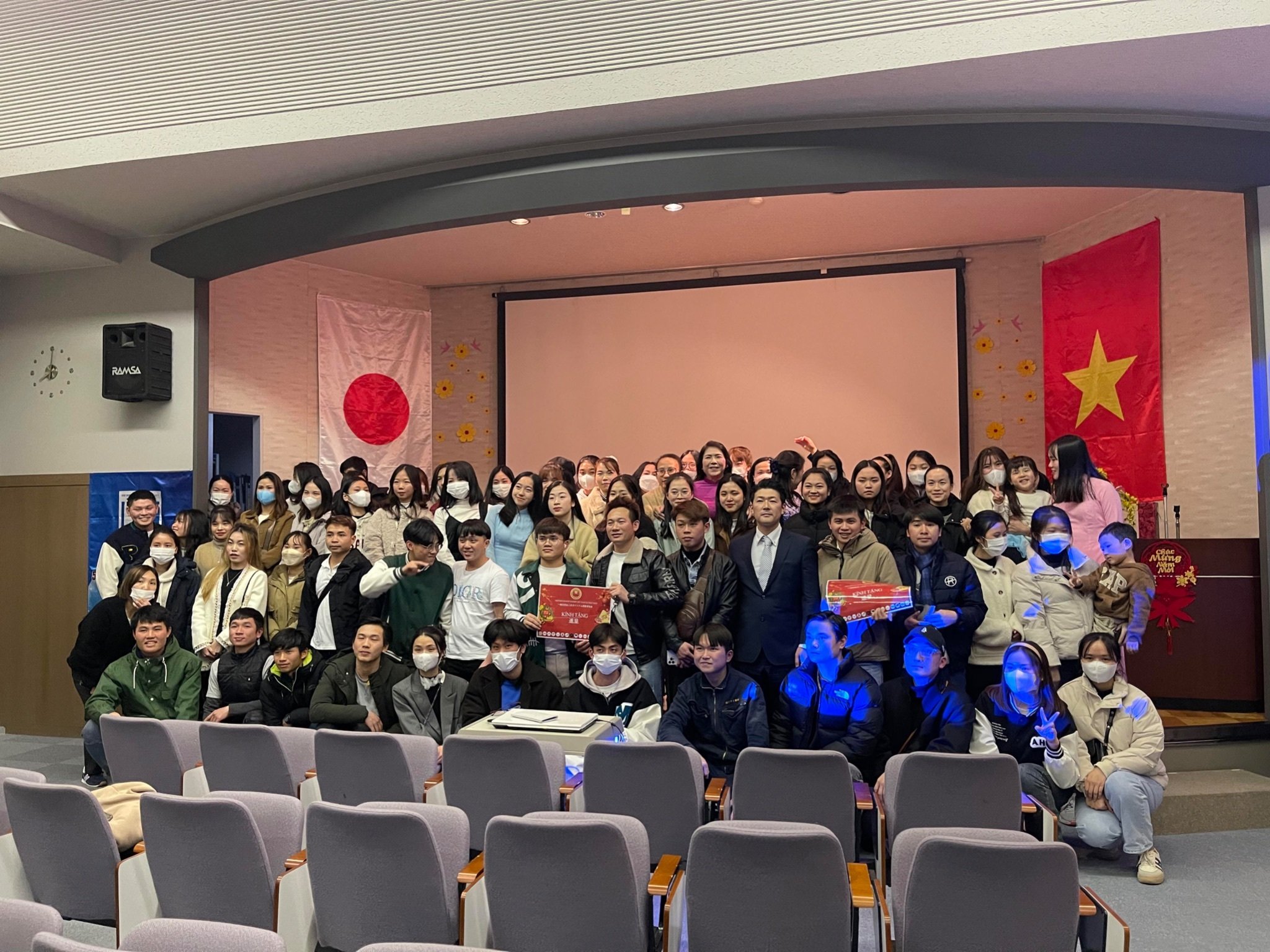
Ngoc Tai (5th person from right, second row from bottom) takes a photo with the Vietnamese community in Ishikawa during the 2024 New Year's Eve program (Photo: Character provided).
Celebrating Tet away from home with 70 fellow countrymen, the Vietnamese man said that occasions like this help him and the community ease their homesickness.
"Although the distance is far, taking half an hour by train, we cherish the opportunity to meet at the end of the year, still maintaining the traditions of our homeland," he said.
Previously, Tai lived and worked in Wajima city (Ishikawa province) - the place identified as the epicenter of the earthquake.
The strong shaking "flattened" the house of Tai and other trainees, leaving only the frame, the plaster walls crumbled, and the roof was blown off. The two highways leading into the city were severely damaged, turning Wajima into an "isolated oasis".
For three consecutive days, he was in a state of lack of clean water and food, and relief groups from the Vietnamese community in Japan could not access the deep area of Wajima city because the military blocked the rescue route.
On the fourth day, Tai evacuated to Kanazawa City with the rest of the company. The journey from Wajima to Kanazawa, which normally takes only 45 minutes or 1 hour, took 10 times longer that day.
At the new shelter, he was able to bathe and drink clean water, and gradually stabilized his mental state, but said he was "uncertain about the future", not knowing when he could return home.
A week ago, the company transferred Tai and two other interns to Nanao City to gradually stabilize their lives and work.
"We wish you good health in the new year, success in your work, and strength to stand up after the earthquake disaster," Tai confided.
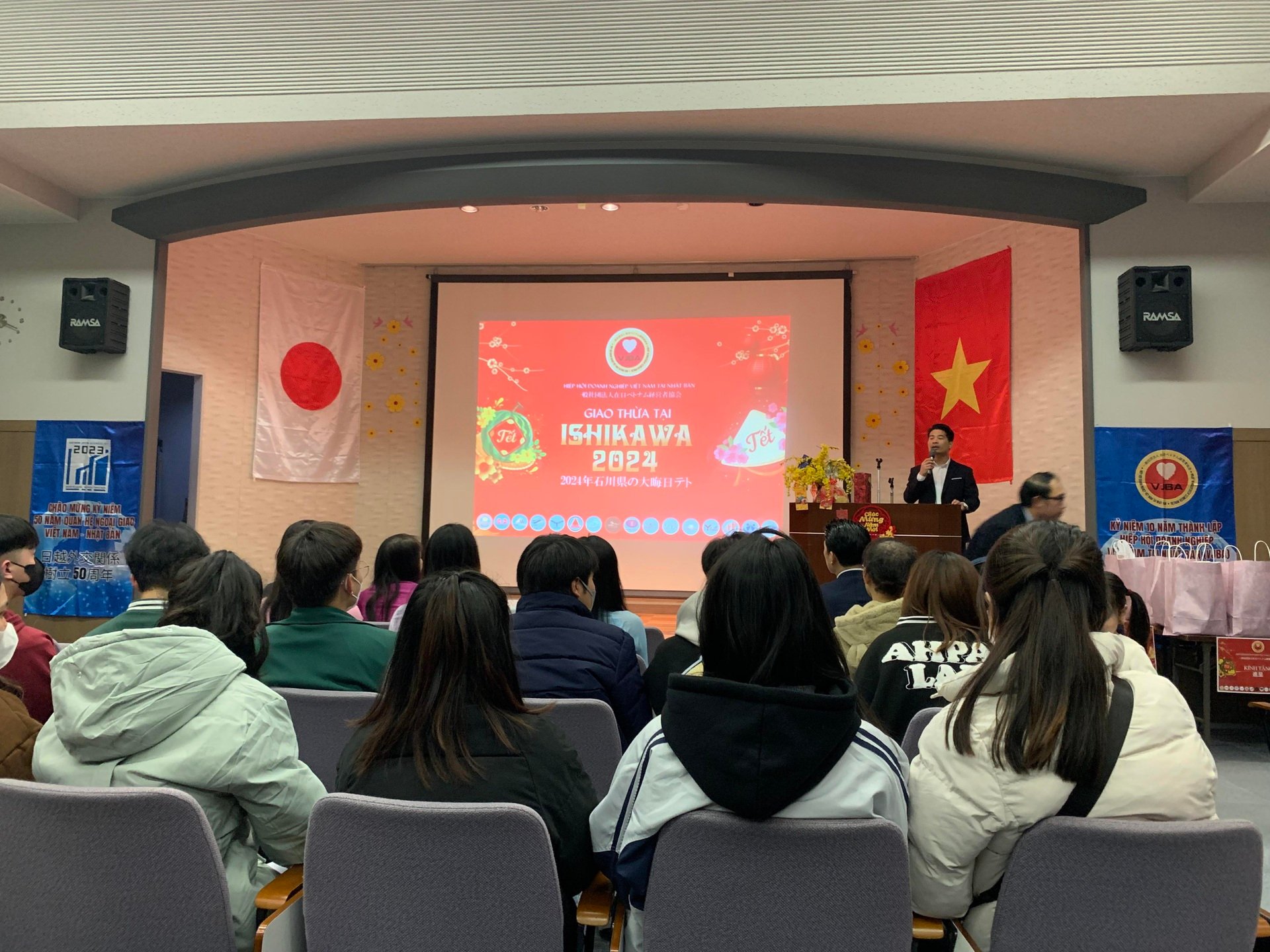
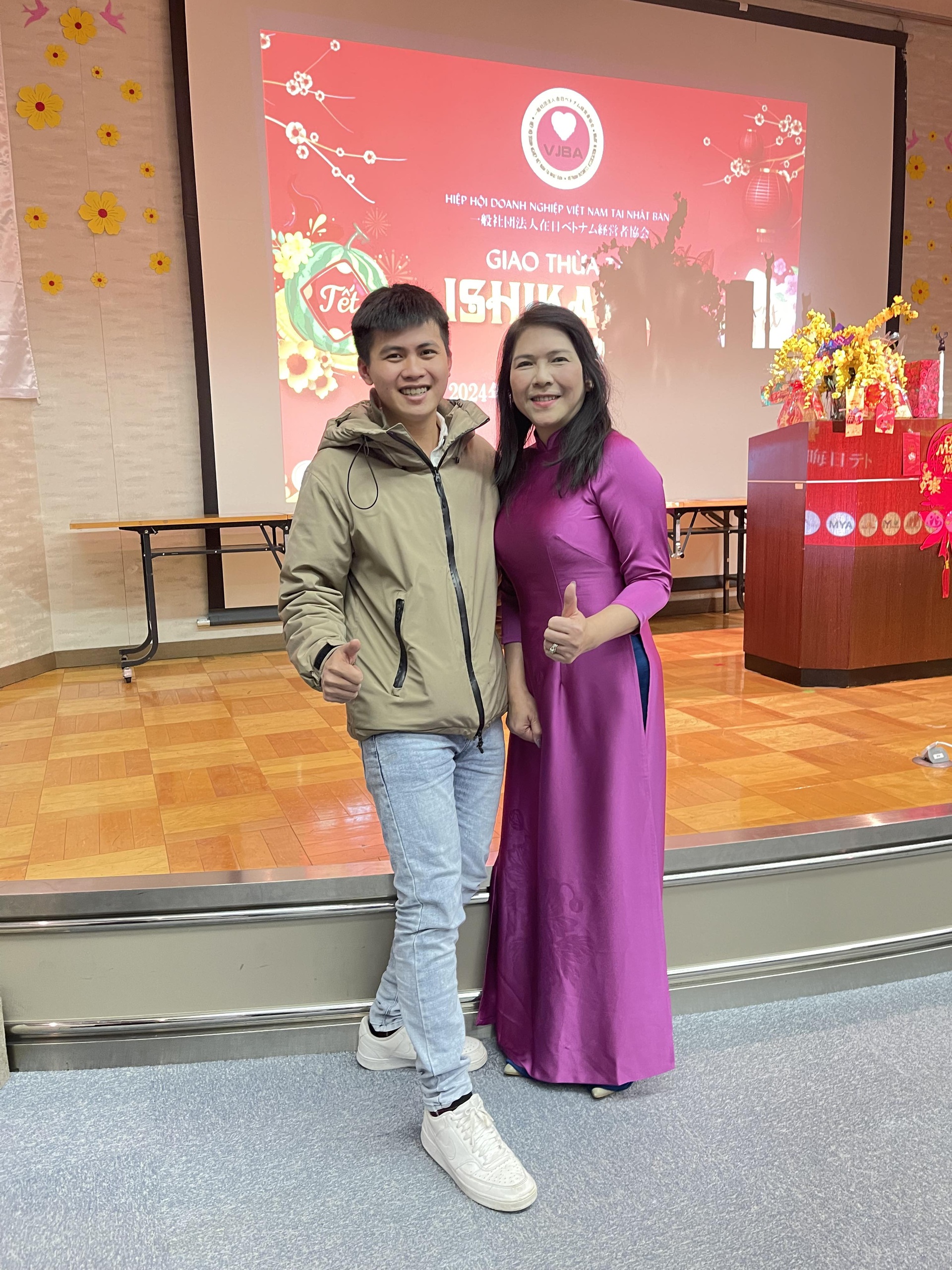
Ngoc Tai and 70 Vietnamese people in Ishikawa participate in the 2024 New Year's Eve program (Photo: Character provided).
Vietnamese students celebrate Tet in Russia
Vietnamese students studying abroad at PELumumba School, Peoples' Friendship University of Russia celebrate Tet away from home with the program "Tet at home".
The program created a cozy space for Vietnamese students to celebrate Tet. The students had a family meal together and sang cheerful spring songs.
Participate in the lion dance performance that appeared for the first time at PELumumba school, or the exciting moments of answering questions about 63 provinces and cities, the suspense when checking lottery numbers...
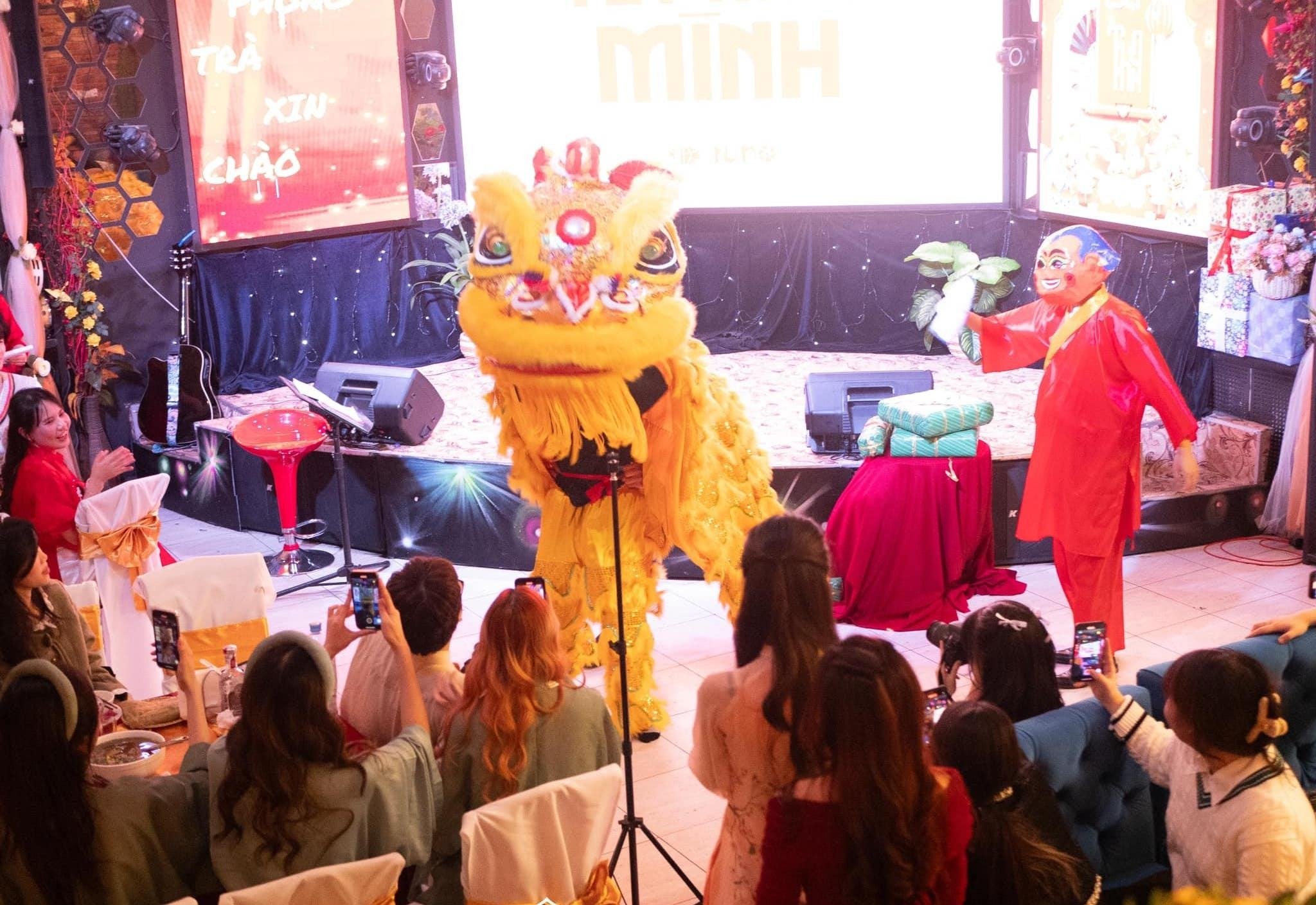
Students enjoyed watching the Vietnamese lion dance performance at a Russian university (Photo: Provided by the character).
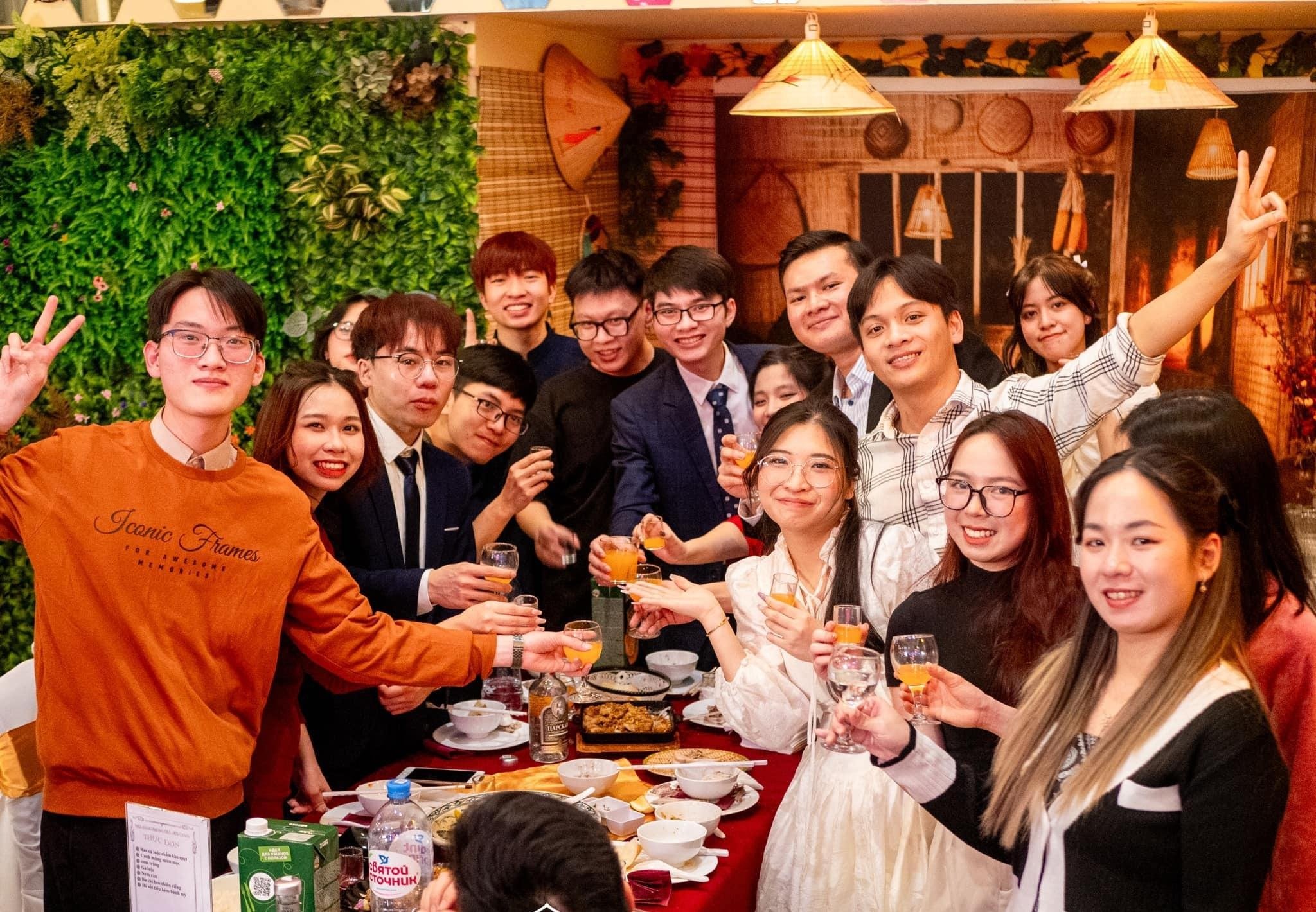
A group of students celebrate Tet away from home at the year-end dinner (Photo: Character provided).
Vietnamese in Australia celebrate New Year's Eve early
On the evening of the 30th of Tet, joining the atmosphere of the Vietnamese community in Brisbane (Queensland, Australia), the family of Ms. Thai Ha (37 years old) participated in activities to welcome the New Year of the Dragon 2024 at a local pagoda. Ms. Ha's daughter wore traditional Vietnamese ao dai and eagerly watched the lion dance and fireworks.
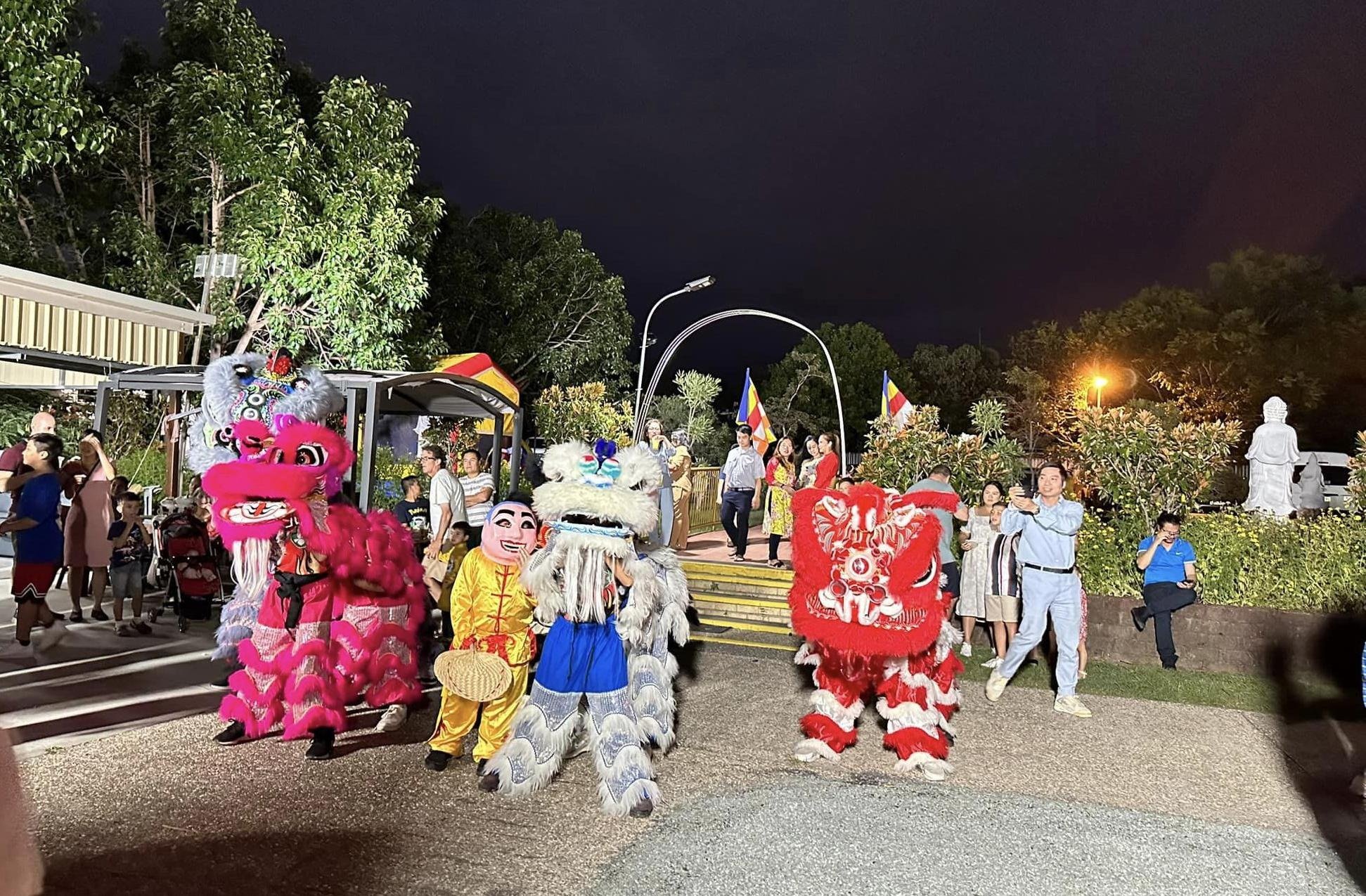
Vietnamese people in Australia perform lion dance to celebrate the New Year (Photo: Provided by the character).
Due to the time difference, Ms. Ha welcomed New Year's Eve 3 hours before Vietnam (at 9:00 p.m. Vietnam time).
"Although we still have to work according to the Gregorian calendar like Australians, we still take great care of the traditional Tet holiday. On New Year's Eve, people often let children wear ao dai and go to the pagoda. We are aware that the further away from home we are, the more we have to preserve our culture together," Ms. Ha shared about her 8th year celebrating Tet in Australia.
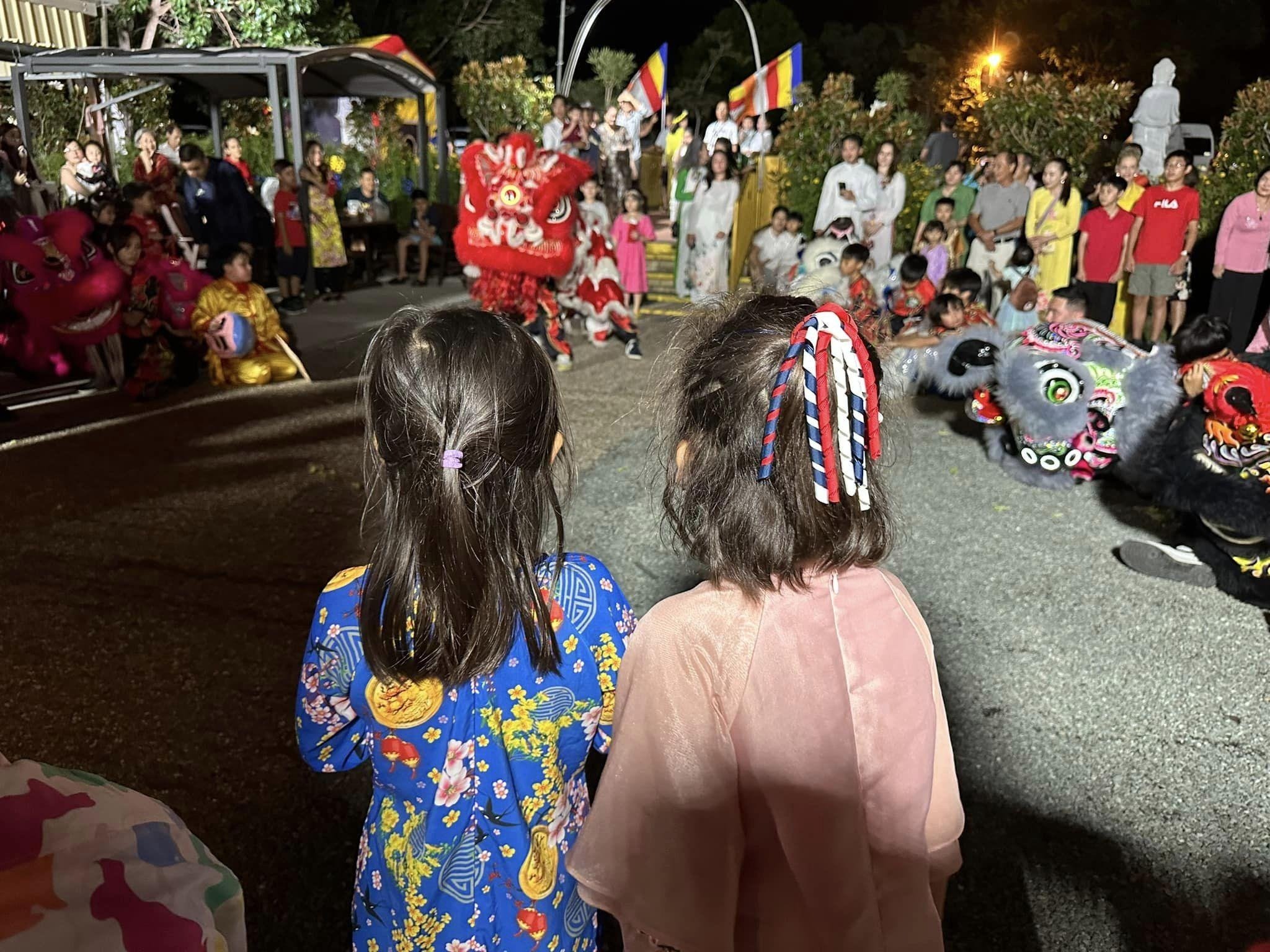
Vietnamese children wearing traditional ao dai participate in Vietnamese New Year celebrations in Australia (Photo: Character provided).
At the moment of welcoming the New Year, Ms. Ha wishes both families in Vietnam and Australia good health, luck and success.
"This year is the year of the dragon, so I believe there will be a lot of luck, prosperity, and fortune for everyone," said the Vietnamese woman.
Vietnamese lady cooks Vietnamese meal for 30 people to celebrate Tet
Ms. Bui Thu, owner of the restaurant "Hello Vietnam" in Taiwan (China), held a year-end party at the restaurant with the participation of more than 30 overseas Vietnamese, including Vietnamese workers and international students. This is also the only Vietnamese restaurant to be honored with a Michelin star for 2 consecutive years in Taiwan.
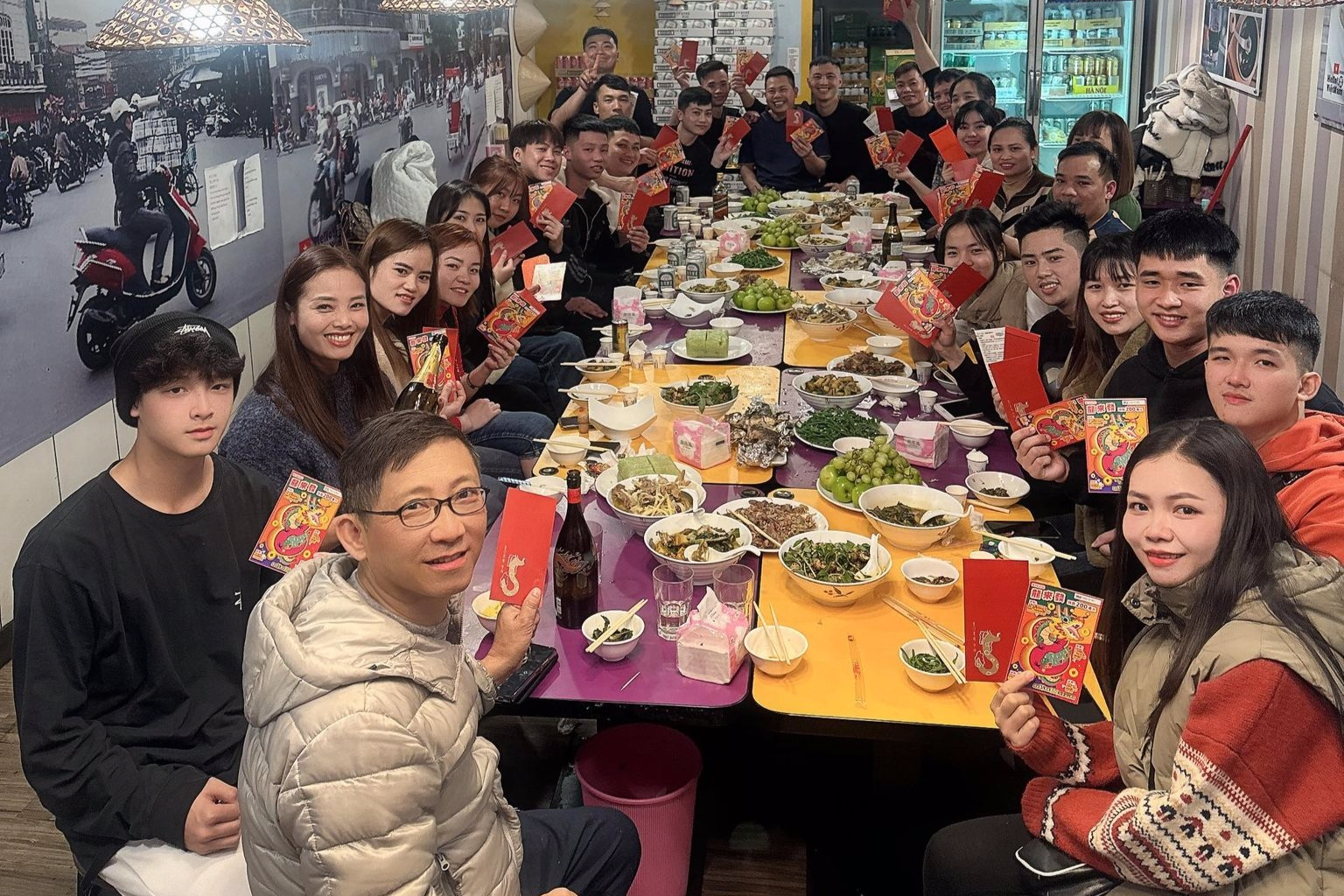
The party was held at a Vietnamese restaurant in Taiwan with the participation of Vietnamese workers and international students who did not return home for Tet this time (Photo: Provided by the character).
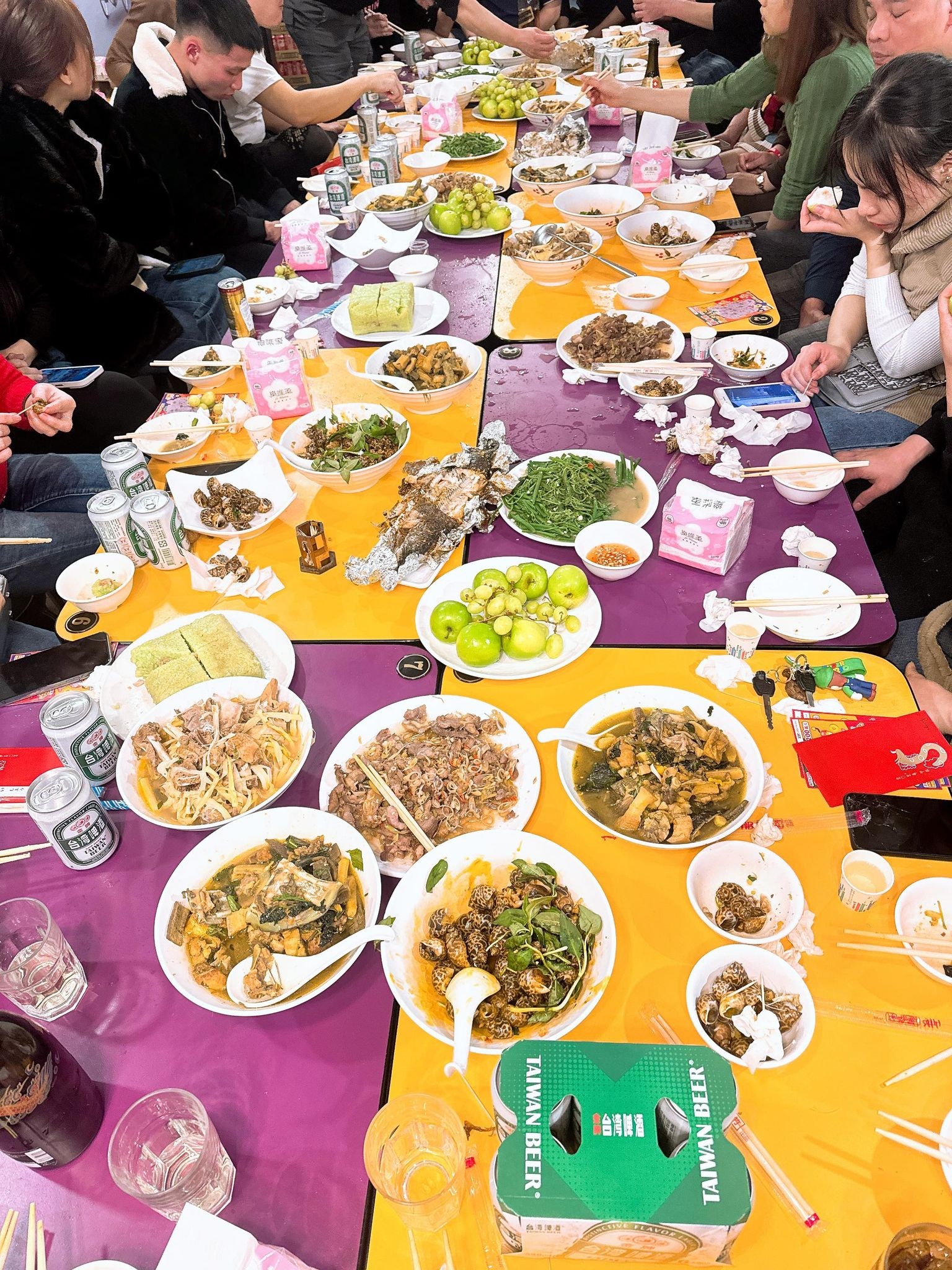
The main meal includes traditional Vietnamese Tet dishes such as fried spring rolls, banh chung, pork roll, and bamboo shoot soup with pig's feet (Photo: Bui Thu).
The meal includes many traditional Vietnamese dishes such as fried spring rolls, banh chung, bamboo shoots cooked with pig's feet, pork roll...
In the warm atmosphere, Ms. Thu also gave each person a red envelope for good luck. Mr. Trung, 21 years old, a child living far away from home who was not able to return home for Tet for the first time, was moved to attend the party. He said the cozy party helped him somewhat ease his homesickness.
Source link




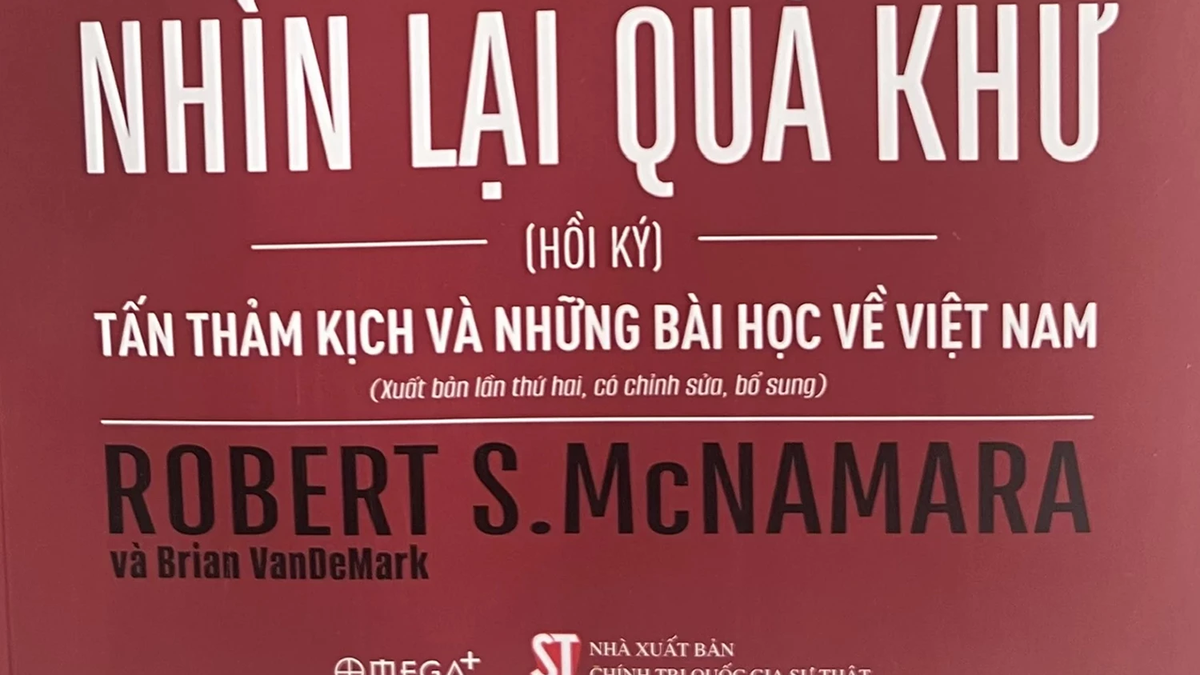




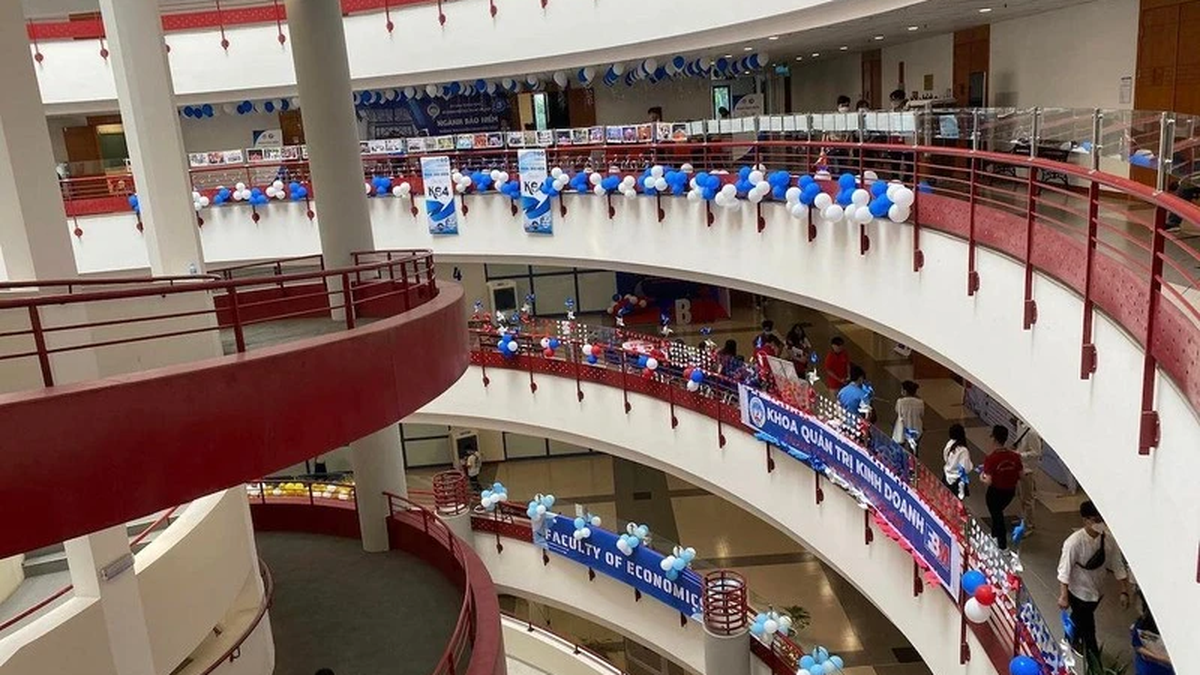
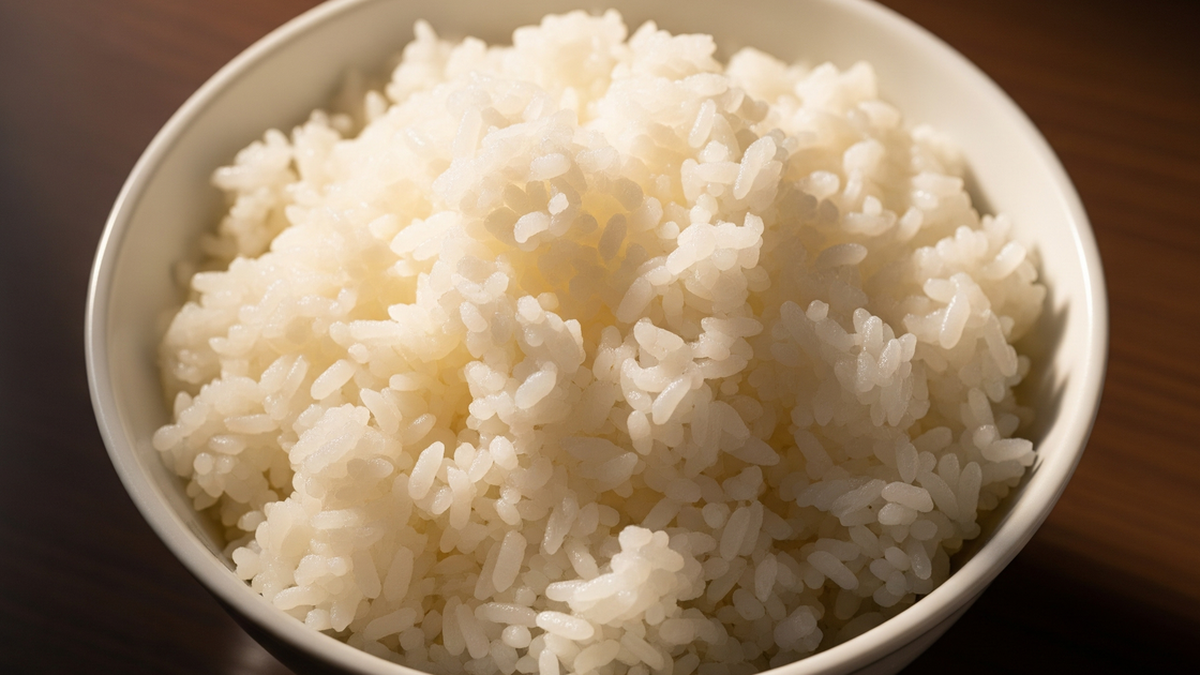
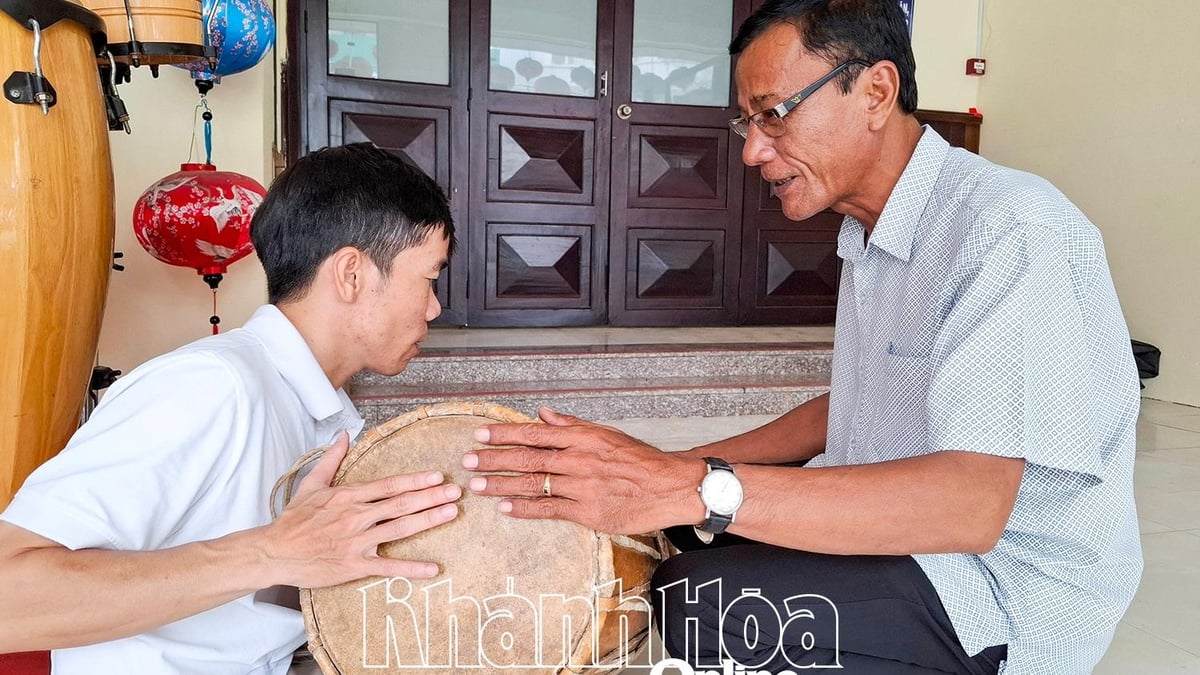



















































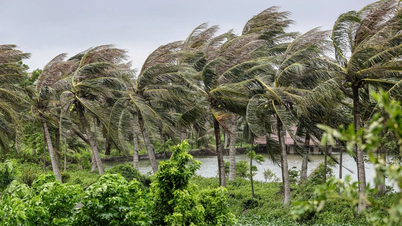
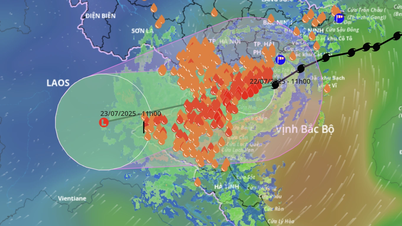
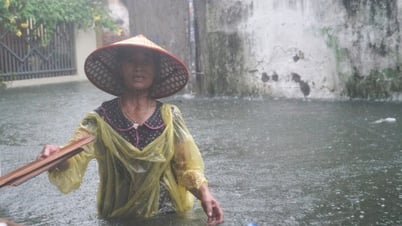
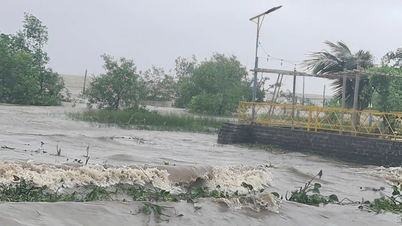



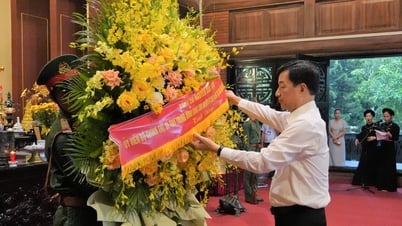































Comment (0)